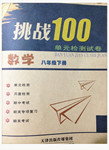题目内容
Both of Jessica’s parents were lawyers and expected her to follow suit. So she went to law school, got a job at a great firm in Washington, DC, and worked as a lawyer for a decade. But her heart was never in it. “I had a big salary but no personal satisfaction,” she says.
Jessica found pleasure in the same thing that had brought her joy since joining the church choir at the age of 12. “Singing always felt like communicating something real at a spiritual and emotional level,” says Jessica. Yet she never considered it a career option. “That seemed like something people did in fairy tales, and I would never let my parents down,” she says.
It was her mom’s diagnosis of brain cancer in 2009 that made Jessica realize she had to write her own happy-ever-after. “Work was busy and my mother was ailing. So I was flying back and forth from Washington, DC to Houston to see her,” Jessica says. “I finally said, ‘Enough!’ and quit.” While caring for her mom, Jessica made a plan. She would spend her savings and study music for a year, and then open a part-time law practice so she could pursue her passion. Before her mother passed away two years later, she encouraged Jessica to follow her dream. Her song Live This Life was inspired by her mom, and her dad came to watch her perform at clubs.
In 2012, Jessica moved to Nashville to try singing and songwriting. A decade of presenting cases in court gave her the confidence to sing for a crowd. “At 20, I would have been too shy to perform,” says Jessica.
“Doing music is so free,” Jessica says. “There’s no pressure to be a star. Success, to me, isn’t a dollar amount or a record deal; it’s doing what I love.”
1.Which of the following is TRUE?
A. Jessica didn’t really like working as a lawyer.
B. Jessica didn’t know what she truly loved for ten years.
C. Jessica wasn’t satisfied with the pay she got as a lawyer.
D. Jessica was grateful for her parents’ arrangement for her.
2.What does the underlined word “ailing” in Paragraph 3 mean?
A. Sick. B. Crazy.
C. Worried. D. Unhappy.
3.What was Jessica’s mother’s attitude toward her singing?
A. Unknown. B. Doubtful.
C. Supportive. D. Negative.
4.By telling Jessica’s story, the writer most probably wants to _______.
A. encourage us to pursue our dreams
B. show that singing can be a practical career
C. tell us the importance of choosing a right job
D. show that family members’ support is important
1.A
2.A
3.C
4.A
【解析】
试题分析: 本文讲述Jessica听从父母的意愿选择当了律师,虽然薪水很高但并没有得到满足感,自己加入唱诗班发现自己的兴趣所在,加上妈妈得了癌症后也鼓励她追求自己的梦想
1.A 细节推断题。根据第一段提到I had a big salary but no personal satisfaction,” she says我虽然薪水很高但没有个人满足感,故选A项。
2.A 猜测词意。根据第三段提到It was her mom’s diagnosis of brain cancer in 2009 that made Jessica realize she had to write her own happy-ever-after.他的妈妈被诊断出脑癌,故选A项。
3.C 细节推断题。根据第三段提到Before her mother passed away two years later, she encouraged Jessica to follow her dream在妈妈去世前的两年里,她鼓励她去实现她的梦想,故选C支持性的态度。
4.A 主旨意图。本文讲述Jessica听从父母的意愿选择当了律师,虽然薪水很高但并没有得到满足感,自己加入唱诗班发现自己的兴趣所在,加上妈妈得了癌症后也鼓励她追求自己的梦想,故选A项。
考点:故事类阅读。

 挑战100单元检测试卷系列答案
挑战100单元检测试卷系列答案